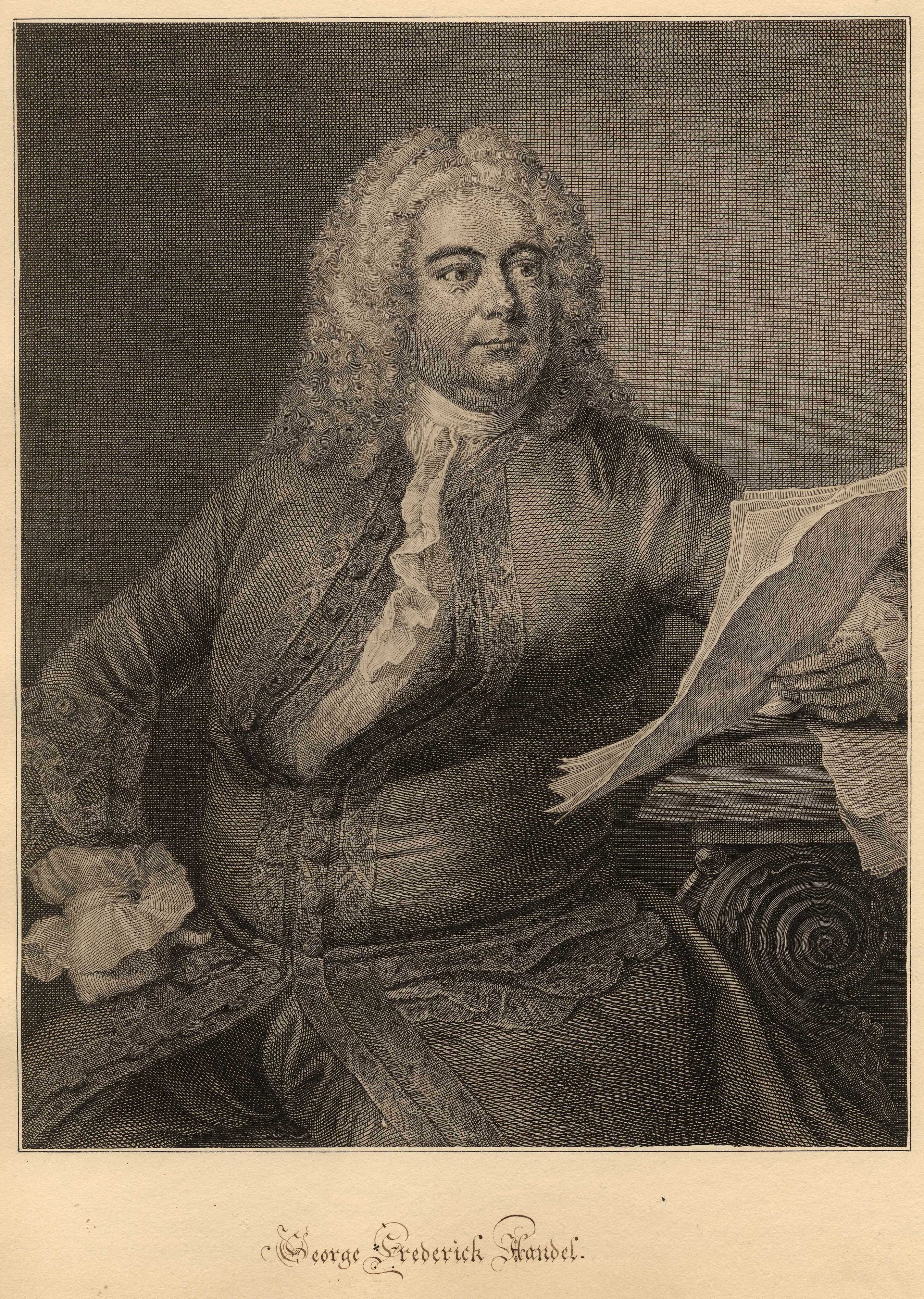IMENEO (HWV 41)
Libretto: Unknown, after Silvio Stampiglia, 1723, 2-part 'componimento dramatico'
First performance: 22nd November 1740, Lincoln's Inn Fields Theatre, London
Cast
- William Savage (Bass)
- Giovanni Battista Andreoni (Alto-castrato)
- Elisabeth Duparc, called "La Francesina" (Soprano)
- Miss Edwards (Soprano)
- Henry Theodore Reinhold (Bass)

Synopsis
Plot Summary
Rosmene and her confidante Clomiri, two servants of Ceres, goddess of marriage and fertility, have been abducted by pirates. Tirinto, Rosmene’s lover, and Argenio, Clomiri’s father, mourn for them.
The choir then announces Imeneo’s arrival, who was able to stay with the virgins due to a trick. In a convenient moment, he then managed to overcome the abductors and kill them, and to bring the two back home. In recognition of his heroic deed he demands Rosmene’s hand, a request that is supported by Argenio as the Eldest, that plunges Tirinto into despair and that is rejected by Rosmene. Clomiri is unhappy, too, because she knows that her own love for Imeneo is in vain.
Rosmene is further put under pressure: by Tirinto, that she should not give up her old love, by Imeneo, that she should show him justified gratitude, and by Argentio that she should place duty higher than passion. The two rivals are torn by all affects between jealousy and hot desire.
Finally, they demand a decision from Rosmene. Desperate, she fakes an attack of insanity during which she seeks advice from Rhodomanto, the judge of the underworld, and in the end decides for Imeneo.
(c) Donald Burrows, CPO
Context
Handel gave no performances of Italian opera in the 1739/40 season, and moved once again from the King’s Theatre (which remained dark) to the smaller Lincoln’s Inn Theatre. For the first time he presented a programme made up entirely of English-language works, including revivals of Acis and Galatea and Alexander’s Feast and the newly composed St. Cecilia Ode and L’Allegro, il Penseroso, ed il Moderato. The outbreak of war with Spain in October had made European travel difficult, and there were certainly problems in encouraging Italian singers to cross the continent for a season in London.
Handel himself had made it back safely to England just in time after a visit to the Continent in July. He seems to have been galvanised by the journey, composing the Opus 6 Concerti Grossi, and two new operas that would prove to be his final works in the Italian operatic style. The first to be performed was Imeneo, which had had a long and complicated gestation. The first version of the score was begun on 9th September 1738, and completed (without recitatives and choruses) on 20th September. At the same time he was writing the oratorio Saul, which was itself completed on 27th September. But the cancellation of the 1738/39 season by Heidegger meant that Handel put Imeneo aside as there was no likelihood of a performance.
Another attempt to mount the production, with a re-drafted score, was made at Easter 1739, but again the production did not materialise and the work was put aside. It was finally finished, after Handel’s European sojourn, on 10th October 1740. The first of only two performances was given on 22nd November 1740, with a cast that included the young William Savage in the title role. Savage had joined Handel’s company in 1735 as a boy soprano, when his success in the oratorio Athalia had led Handel to create the role of Oberto in Alcina for him. Savage’s voice had now broken and dropped to a bass. The illness of La Francesina led to the cancellation of the second performance, and the third and final one took place on 13th December ”by Command of the Prince of Wales.’
Reaction to the opera was mixed. Thomas Harris, a fervent supporter of Handel, wrote to his brother James in Salisbury immediately after the first performance: ‘I have just now bin at Mr. Handel’s operetta, at which were the King and all the St. James’s royall family and a very good house. I don’t think it mett with the applause it deserves, as I think there are a great many good songs in it…’. But Charles Jennens, with whom Handel had been working on Saul at the same time he was composing Imeneo, had a rather different response. He wrote to James Harris on 29th December: ‘We have had nothing new yet but the Operetta of Hymen, in my opinion the worst of all Handel’s Compositions, yet Half the songs are good.’


